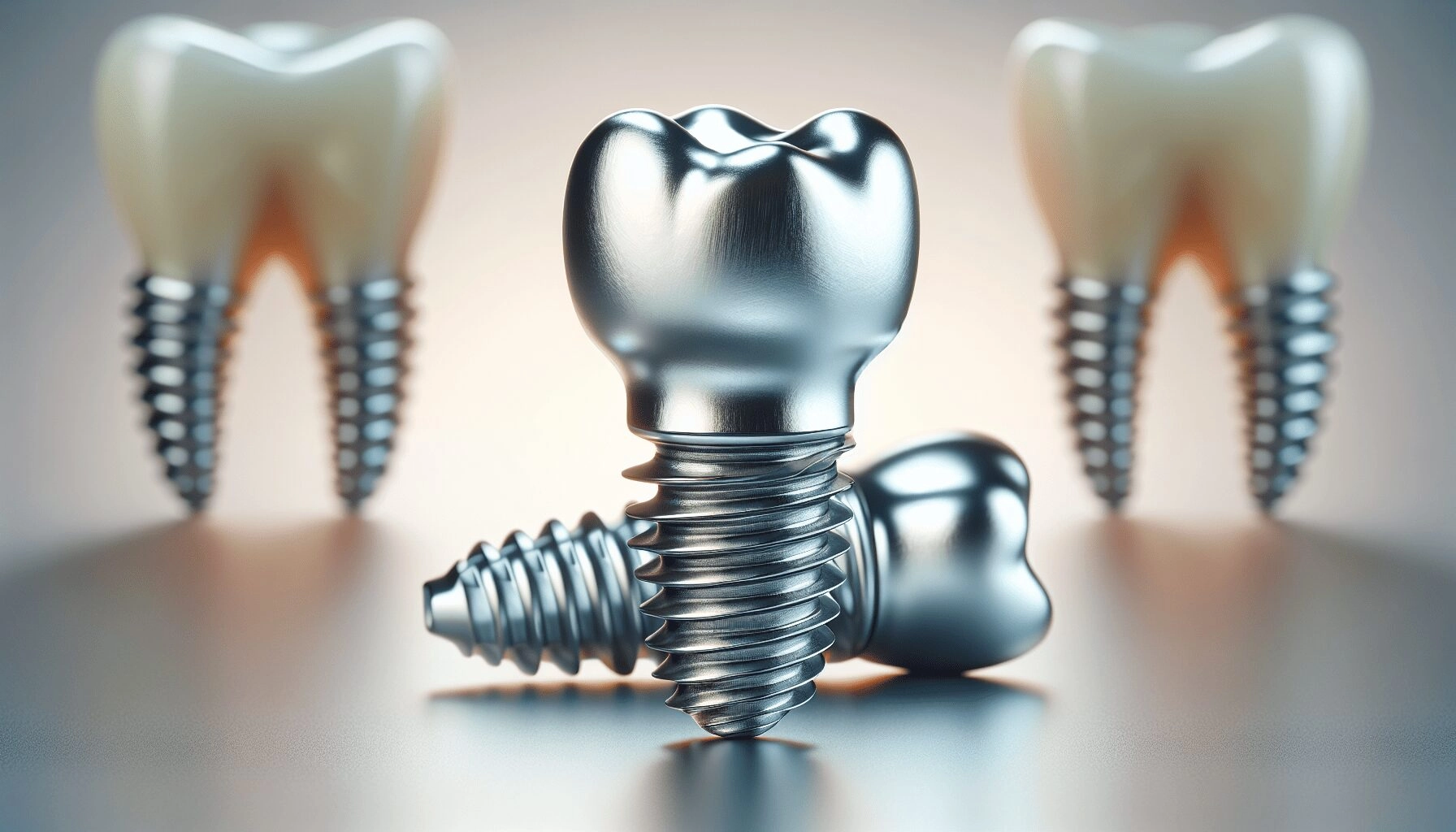Is There A Downside To Dental Implants?
Have you ever wondered if there could be downsides to getting dental implants? This question might surprise those who see implants as the perfect solution for missing teeth. While they indeed offer many benefits, it’s essential to explore both sides of the story before making a decision.

Understanding Dental Implants
Before pondering any potential downsides, it’s helpful to understand what dental implants are. These implants are artificial tooth roots placed into your jawbone. They support a crown, bridge, or denture, providing a strong foundation for replacement teeth. Dental implants can greatly improve the function and aesthetics of your smile, making them a popular choice.
How Dental Implants Work
Dental implants consist of three main parts. First, there’s the implant itself, which is typically made of titanium. This part is surgically inserted into your jawbone. Once healed, a connector piece called an abutment is attached. Finally, a custom-made crown fits onto the abutment, completing the process. If all goes well, the result is a functional and natural-looking tooth replacement.
Benefits of Dental Implants
Many people consider dental implants as the gold standard for tooth replacement. Unlike dentures, implants are a permanent solution that doesn’t need to be removed and replaced over time. They provide a stable bite and help maintain the structure of your jawbone. Additionally, dental implants look and feel like real teeth, offering an excellent aesthetic and functional result.
Possible Downsides of Dental Implants
Despite the benefits, it’s crucial to consider the potential downsides. Like any medical procedure, dental implants come with risks and possible complications. Understanding these can help you make a more informed decision about whether implants are the right choice for you.
Cost Considerations
One of the most significant downsides for many people is the cost. Dental implants can be expensive, and this may not align with every budget. Other tooth replacement options, like dentures or bridges, might be less costly. It’s essential to weigh the financial aspects carefully when considering implants.
Surgical Risks
Since dental implants involve surgery, there are risks to consider. Any surgery can have complications, such as infection, nerve damage, or issues with sinuses. Although these problems are relatively rare, they are worth discussing with your dentist.
Healing Time
The process of getting dental implants can be lengthy. After the implant is placed, it may take several months for the jawbone to heal around it. This healing period can feel like a long commitment when compared to other tooth replacement options.
Potential for Implant Failure
While most implants are successful, there is a chance of failure. Factors like smoking, diabetes, or inadequate jawbone quality can affect the success rate. It’s crucial to follow all pre- and post-operative care instructions to give your implant the best chance of success.
Caring for Dental Implants
Proper care is essential to the longevity of dental implants. While they don’t get cavities like natural teeth, they still require maintenance. Poor oral hygiene can lead to peri-implantitis, a condition similar to gum disease, which can result in implant failure.
Daily Maintenance
Brushing and flossing around your implants is just as important as caring for your natural teeth. Use a soft-bristled toothbrush and non-abrasive toothpaste. Floss gently and consider using an interdental brush for those hard-to-reach areas.
Regular Check-Ups
Schedule regular dental check-ups to ensure that your implants remain in good condition. Your dentist can provide professional cleanings and check for any early signs of trouble, helping you maintain that healthy smile.
Who Should Consider Dental Implants?
Dental implants aren’t the best solution for everyone. Factors such as overall health, bone density, and lifestyle choices can affect your candidacy for implants. It’s vital to consider these elements before proceeding with treatment.
Health Considerations
Good candidates for dental implants generally have good oral and general health. Certain conditions like uncontrolled diabetes or osteoporosis can complicate implant success. Discuss any health issues with your dentist before choosing implants.
Bone Density Requirements
Adequate jawbone density is necessary to support implants. If your bone is too thin or soft, you may require a bone graft before receiving an implant. This prep work can add time and expense to the process.
Lifestyle Choices
Lifestyle habits, such as smoking or heavy alcohol use, can impact implant success. These factors can slow down healing and increase the risk of complications. Consider lifestyle changes to improve the likelihood of a successful implant procedure.

Are There Alternatives to Dental Implants?
If you’re unsure about dental implants, it’s helpful to know that alternatives exist. Options like dentures and dental bridges can provide effective tooth replacement solutions. Let’s take a closer look at these alternatives.
Dentures
Dentures have been a long-standing option for tooth replacement. They’re typically more affordable than implants and can replace multiple missing teeth or an entire set. However, they require regular adjustments and don’t provide the same stability as implants.
Dental Bridges
Dental bridges are another suitable alternative. They can fill the gap created by one or more missing teeth. Bridges are fixed in place and can be an attractive option for those looking to avoid removable dentures. However, they require healthy existing teeth for support and can contribute to decay if not cleaned properly.
Making an Informed Decision
When considering dental implants, it is vital to have all the facts. Understanding both the pros and cons will help you make a decision that aligns with your needs and lifestyle preferences. Consulting with your dentist is the first step in determining whether implants are suitable for you.
Consultation is Key
Discuss your options with your dentist. They will evaluate your oral health, discuss potential risks, and help you weigh the benefits against any downsides. They can also provide estimates for costs and timelines, helping you plan accordingly.
Weighing Pros and Cons
Create a list of the advantages and disadvantages that are most important to you. Doing this can help clarify your decision and ensure you choose the best option for your individual situation.
Sweet Water Dentistry: A Partner in Your Decision
At Sweet Water Dentistry, we are committed to helping you make the best decision for your oral health. Whether you choose implants or explore other options, we’re here to support you every step of the way.
Understanding Costs and Insurance
Cost concerns are common when contemplating dental implants. At Sweet Water Dentistry, we assist by filing your insurance claim, aiming to make this process smoother. Though all payments are due at service time, feel free to consult us for any queries you might have about coverage and costs.
Schedule a Consultation
Our friendly team encourages you to schedule a consultation to learn more about dental implants and other services. This meeting is your opportunity to discuss your needs, ask questions, and start a partnership with our dedicated dental team.
Conclusion: Your Journey to a Healthy Smile
Choosing whether to proceed with dental implants is a personal decision that requires careful consideration of your unique circumstances. While implants offer a range of benefits, being aware of the potential downsides enables you to make an informed choice.
Visit or contact us at Sweet Water Dentistry for personalized advice tailored to your specific oral health needs. We’re located at 5915 Sweetwater Cir, Fairhope, AL 36532, or online at sweetwatersmile.com. For appointments call (251) 210-2773. Dr. Phillip N. Greer, D.D.S., and the team look forward to supporting your journey toward a healthier, more confident smile. Your smile is important to us, and we strive to provide excellent care in a peaceful and welcoming environment.
By considering the information provided here, along with the guidance of trusted dental professionals, you will be well-equipped to decide if dental implants are right for you.
Visit us for expert care:
Sweet Water Dentistry
📍 5915 Sweetwater Cir, Fairhope, AL 36532
🌐 sweetwatersmile.com
📞 Call or Text: (251) 210-2773
Follow us on Facebook and Instagram for the latest updates and special offers!

